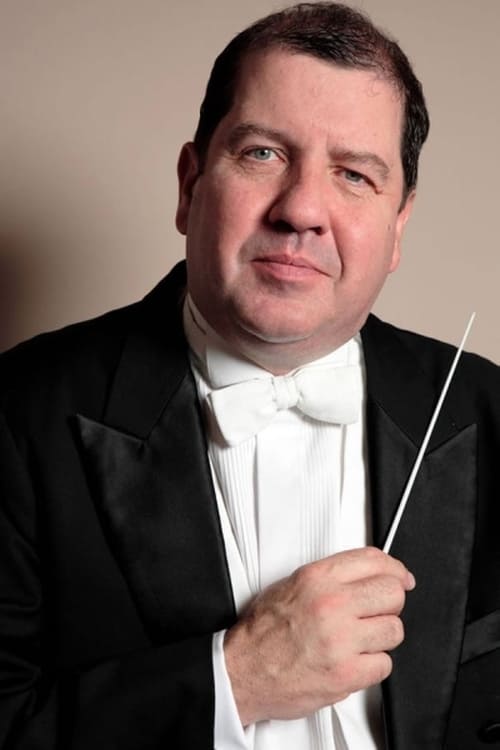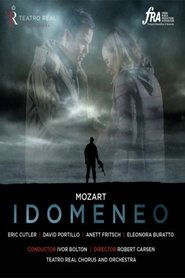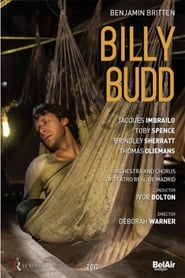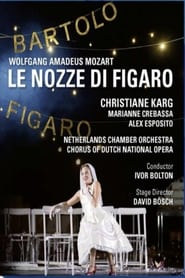detail profile ivor bolton
Peran Yang Di Mainkan Ivor Bolton
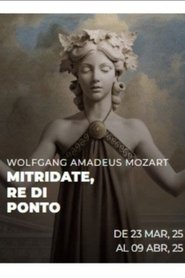 King Mitridate has left his empire...
King Mitridate has left his empire...Mitridate, re di Ponto 2025
King Mitridate has left his empire in the care of his sons Sifare and Farnace while he is away at war. Deceived by a rumour of his father's death, Farnace declares his love to the King's betrothed, Aspasia. She seeks the protection of Sifare. Mitridate returns with Ismene as a bride for Farnace. When he hears of Farnace’s guilt, he determines to kill him. Will the ensuing intrigue of rivalry - in love and in politics - wind its way to a happy end?
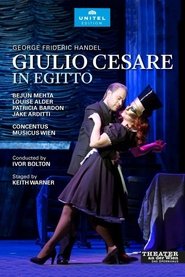 Triumphantly premiered in 1724 at the Kings...
Triumphantly premiered in 1724 at the Kings...Giulio Cesare in Egitto 2022
Triumphantly premiered in 1724 at the King's Theatre in London, George Frideric Handel's Giulio Cesare in Egitto masterfully combines human emotions: Triumph with sorrow, despair with happiness and love with profound melancholy in the face of the transience of all earthly life. Star director Keith Warner creates a production that imaginatively blends silent film and baroque opera, delightfully echoing Mankiewicz's legendary Cleopatra with Elizabeth Taylor, Rex Harrison and Richard Burton. An excellent cast of singers is led by two of the world's leading countertenors: Bejun Mehta and Christophe Dumaux. Louise Alder shines as the seductive Cleopatra. Patricia Bardon, Simon Bailey and Jake Arditti are further highlights in this extraordinary group of singers, while Ivor Bolton provides the appropriate soundtrack on the podium of the Concentus Musicus Wien.
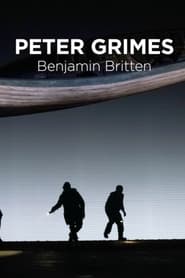 Based on a poem published in 1810...
Based on a poem published in 1810...Peter Grimes 2021
Based on a poem published in 1810 with more ethnographic than dramatic focus, Britten constructed a sombre parable about the conflict between the masses and the individual. The maritime atmosphere, the crudity of people’s lives and passions, and the complex, impenetrable personality of the protagonist come together in a tragedy which ferments and explodes in the din of silence and hearsay. New production of the Teatro Real, in co-production with the Royal Opera House Covent Garden of London, the Opéra national of Paris and the Teatro dell’Opera of Rome
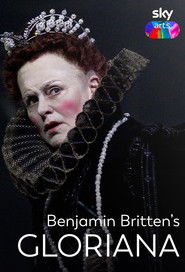 Performed at Madrids historic Teatro Real...
Performed at Madrids historic Teatro Real...Gloriana 2018
Performed at Madrid's historic Teatro Real in 2018, Ivor Bolton conducts Benjamin Britten's opera based on Lytton Strachey's 1928 Elizabeth and Essex: A Tragic History. In her repeated clashes with the Earl of Essex-a longtime favorite of the queen who was ultimately put to death for treason-Elizabeth I is depicted as flawed and vain, human and sympathetic.
 Production of the Munich Opera Festival 2017...
Production of the Munich Opera Festival 2017...Oberon 2017
Production of the Munich Opera Festival 2017. The plot of Carl Maria von Weber's romantic fairy opera, which premiered at London's Covent Garden in 1826, is quite astonishing: after the fairy king Oberon has fallen out with his wife Titania, it is humans of all people who are supposed to make things right. Titania will only be reconciled if a human couple proves the truthfulness of their love to the death. Oberon's servant Puck already has someone in mind: the crusader Hüon of Bordeaux, who loves the caliph's daughter Rezia.
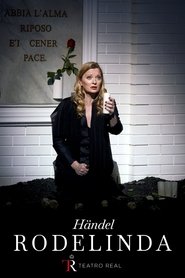 Claus Guths exciting 2017 staging of Handels...
Claus Guths exciting 2017 staging of Handels...Rodelinda 2017
Claus Guth's exciting 2017 staging of Handel’s "Rodelinda" at Madrid’s Teatro Real, featuring Lucy Crowe and Bejun Mehta as Rodelinda and Bertarido, with conductor Ivor Bolton. After the successes of "Giulio Cesare" in 1723 and "Tamerlano" in 1724, Rodelinda completes the trilogy of Handel’s great opera seria masterpieces. The work was composed in 1725 using Nicola Francesco Haym’s libretto, a work inspired by Antonio Salvi’s earlier libretto which had been itself adapted from Pierre Corneille’s tragedy "Pertharite, roi des Lombards". Rodelinda thus brought one of the most glorious compositional periods in the Handel’s career to a close, about a decade after his arrival in the British capital. Mixing romantic storytelling and political intrigue, Handel produced one of his most beautiful scores, a true operatic tour de force.
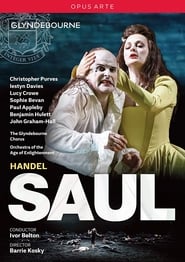 Glyndebournes Saul stole the summer and...
Glyndebournes Saul stole the summer and...Saul 2016
Glyndebourne's Saul stole the summer and had critics raving. The Guardian (****) applauded virtuoso stagecraft from director Barrie Kosky in his debut production there, calling the show a theatrical and musical feast of energetic choruses, surreal choreography and gorgeous singing. For The Independent, which ranked it amongst five top classical and opera performances of 2015, there was no praise too high for the cast. The Orchestra of the Age of Enlightenment under Ivor Bolton sparkles from the pit with period panache, and designer Katrin Lea Tag's exuberant costumes (The Times ****) set the Old Testament story in Handel's time, with a witty twinge of the contemporary.
 This Wagner opera is rarely performed...
This Wagner opera is rarely performed...Das Liebesverbot 2016
This Wagner opera is rarely performed because of the scandals that engulfed the Magdeburg Theatre when it was performed in 1836 under the title The Novice of Palermo, and became known as a cursed opera from which the composer had to distance himself. Wagner's adaptation of the story reflects the rebellious mood of a Revolutionary Germany, vindicating sensual love and attack the fanatical repression of sexuality by a puritanical and hypocritical authority. As the prose says, "Shame to him whose cruel striking/Kills for faults of his own liking!". One of the most extraordinary musicals based on a text by Shakespeare, especially worthy of a new performance as it is four hundred years since the death of the Bard.
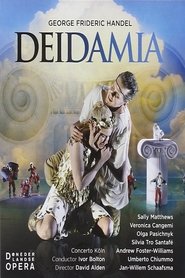 Here is a rare and exceptional...
Here is a rare and exceptional...Deidamia 2012
Here is a rare and exceptional example in which the director and costume designer amuse themselves with `silly' costumes, but it actually works. I usually loath the stupid concept of 'clever' producers' of dressing opera singers in an motley set of `modern' and bizarre costumes (mostly tasteless) to help the `stupid' spectators to understand the universality of the opera across time and place. However, in this particular production I enjoyed every moment of it. All my reservations withstanding, I found that the costumes have actually helped highlight the `buffa' aspects of this supposedly `siria' opera. This work may not be among Handel's greatest masterpieces, but the way it is presented and sung here makes it a thorough pleasure for the senses.
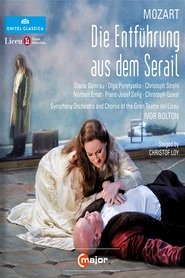 The prestigious Gran Teatre del Liceu...
The prestigious Gran Teatre del Liceu...Mozart: Die Entführung aus dem Serail 2011
The prestigious Gran Teatre del Liceu from Barcelona presents Mozart's beloved opera in an elegant, dramatic twist with a sparkling cast of world-class stars, led by coloratura soprano Diana Damrau as Constance and rising star Olga Peretyatko as Blonda. Director Christophe Loy has created a thought-provoking and surprisingly original script in which both Constance and Blonda feel respect, admiration and even deep love for their captors. As a result of this tantalizing, torturous approach, traditional norms and concepts of good and evil were turned upside down.
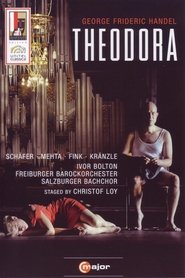 George Frederic Handels oratorio Theodora in...
George Frederic Handels oratorio Theodora in...Theodora 2009
George Frederic Handel's oratorio Theodora, in its first-ever staged version at the Salzburg Festival, was among the highlights of Handel Year 2009. Acclaimed director Christof Loy presented Theodora as the profoundly moving tale of a woman who prefers death to denying her faith, an interpretation captivated with bravura by world-renowned video director Hannes Rossacher. A luminous Christine Schaefer and countertenor Bejun Mehta formed a perfect leading couple altogether suited to conductor Ivor Bolton's vigorus reading.
 Yenufa is an outstanding phenomenon in...
Yenufa is an outstanding phenomenon in...Janacek: Jenufa 2009
"Yenufa" is an outstanding phenomenon in the music of the 20th century. Drawing on Moravian folklore, Janáček faithfully and deeply conveyed the drama of a peasant girl. The composer followed the path of Mussorgsky, revealing the spiritual life of people through the recreation of intonations of living speech. The libretto is based on a drama written in a naturalistic manner. Free from naturalism, Janáček's music has powerful emotional strength and psychological truth. It was written during a difficult period in the composer's life (illness and death of his daughter).
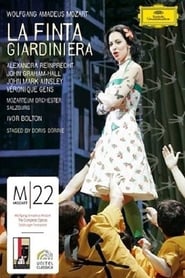 Part of an epochmaking release of...
Part of an epochmaking release of...La Finta Giardiniera 2006
Part of an epoch-making release of Mozart's complete operas on DVD, here is the 18-year old composer's first mature opera buffa. Hilarity mingles with passionate emotions when belfiore believes he has killed his lover in a fit of jealousy, but then encounters her disguised as gardener sandrina. Famed filmmaker Doris Dorie directs a superb young cast in this tale of love, hate and intrigue across class barriers, all vividly depicted by Mozart's astonishingly rich and varied music.
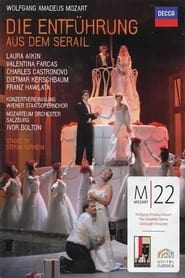 Without question this is an incredibly...
Without question this is an incredibly...The Abduction from the Seraglio 2006
Without question, this is an incredibly bizarre production. The revised storyline makes little sense, and there is a surprising amount of violence and sexual innuendo. However, the singers are superb, both vocally and in regard to their stage presence and acting, the orchestra plays beautifully, the chorus is wonderful, and the set is as clever as it is strange. It's definitely not for purists, or for someone new to this particular opera. But for someone who's seen Die Entfuhrung before, and is familiar enough with the original story to not miss it, watching Belmonte, Constanze, Blonde, Pedrillo, and Osmin embark on an entirely new adventure -- and push the boundaries of good taste -- is rather enjoyable.
